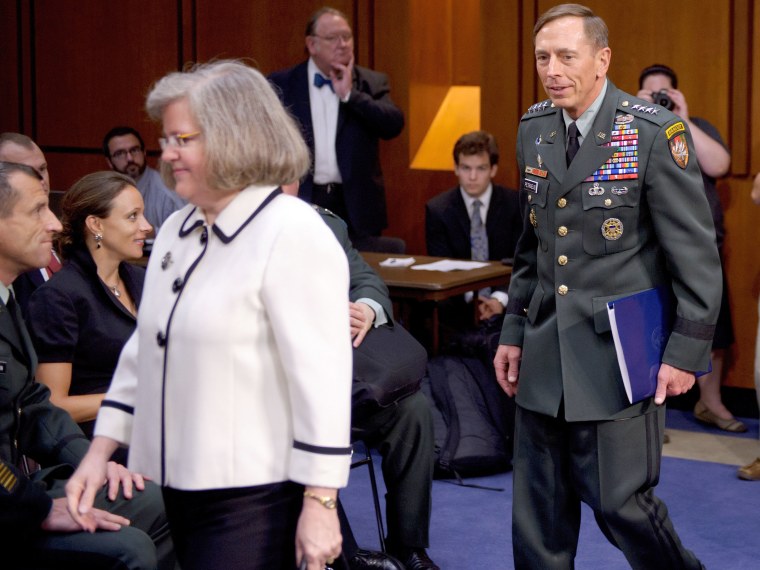Here's the background context to the seemingly unending string of revelations about General Petraeus' extra-marital affair that I—and I'm not gonna front—have been following with a mix of fascination and shame for the last week and a half. Over the last decade two trends have conspired to vastly reduce our privacy.
First there's technology. Social media has allowed us to share every last detail of our lives, often intentionally, and often unintentionally—the photo accidentally tagged on Facebook, the wayward strike of the reply-all button that shares your thoughts about a friend's disastrous significant other— well, you get the picture. We now leave a digital trail traceable by anyone with the resources to buy access to it. Just this week we learned the Obama campaign knew what TV shows some of its targeted voters watched.
And then there is the massive explosion of the surveillance state in the wake of 9/11. Thanks to the PATRIOT Act, its reauthorization, the FISA (Foreign Intelligence Surveillance Act) reauthorization and a series of policies and precedents during the Bush adminsitration that have been continued and codified under the Obama Administration, the government has access to more info about us than at any time in history. As just a small example of what this looks like in practice, U.S. government requests for information from Google don't require warrants, AND, most crucially, don't require disclosing secret, national security-related requests.
For a while, I've thought the combination of these two trends—the ubiquity of technology and growth of the surveillance state—was pushing us towards a very dystopic future, one in which citizens are unable to keep any of their secrets while the government is able to keep all of its secrets.
I've feared we'll eventually end up totally exposed, both to each other and to the state, while the state and what it's doing in our name, will be shrouded entirely in mystery.
And then, somewhat miraculously—but also, when you think about it, inevitably— these two trends collided with each other in the Petraeus affair.
The four star general's private communications with his biographer Paula Broadwell, and a widening group of ancillary characters, reveals a whole lot of mundane personal failings, hurtful and shameful, sure, but really, it seems, not anything actually scandalous as far as the public sphere goes.
In fact, the only real possible public scandal here, as far as I can tell, is the conditions under which the FBI came to read the private emails of Petraeus and Broadwell.
We now know that the investigation began because Jill Kelley, an acquaintance of Petraeus who served a—let me make sure I get this right— the unpaid social liaison at MacDill air force base in Tampa, received some hostile anonymous emails that chastised her for allegedly flirting with Petraeus. Kelley then complained to an FBI agent named Frederick Humphries, and somehow, against the odds, an FBI investigation into cyberstalking was opened, one that led the FBI to read Broadwell's emails, then Petraeus', and now here we are.
Cyberstalking investigations appear to be rare. In fact thousands of women in this country are cyberstalked every year and the recourse for them is often nothing, which is itself a problem. Ten cases have been prosecuted under federal cyber-harassment law over the past two years.
And yet somehow, in this case, it seems that because Jill Kelley knew a guy, an investigation got opened here. If the thing that decides whether a case is opened is that someone's got an agent's business card, then we're in trouble.
But in the midst of all this breathless coverage it has been difficult to separate the substantive from trivial, the prurient from the revelant. And that's because, as gripping as the tale is as human drama, it is almost entirely that: a human drama. People acting as people do. I'm reasonably sure that a sweep of any cluster of citizens' emails opened at random would reveal similarly sordid travails.
That's the point. We all have facts about ourselves we don't want the world to know. That's precisely why privacy is so important, why control over the intimate details of our lives matters, particularly as a core protection from state overreach. The power that comes with inside knowledge of a person's secrets and the intimate details of their private life has been, throughout history, an accomplice to tyranny.
Even if the days of J. Edgar Hoover are long gone, his ghost still hovers over all of us.
